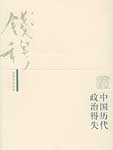Chapter 1 sequence
I wanted to write a history of China's political system a long time ago.One, I think politics is an important item in the cultural system.Especially in China, its cultural spirit focuses on the humanities.What's more, it is the ideal of Confucianism, which has always focused on the cultivation of Qi Zhiping.To study traditional Chinese culture, traditional Chinese politics should never be ignored.Before and after 1911, due to the revolutionary propaganda, the political tradition after the Qin Dynasty was wiped out with the four words of autocracy and darkness.Due to the neglect of traditional politics, the misunderstanding of traditional culture has been deepened.If we want to review Chinese culture objectively, we should review traditional politics. This is the first reason why I want to write the history of China's political system.Furthermore, I believe that the political system must be born from its roots.Even if some can be imported from abroad, they must first be integrated with their own country's traditions before they can really have a considerable effect.Otherwise, a lifeless politics and a cooperating system will definitely not be able to grow.In other words, systems must match personnel.Before and after 1911, everyone talked about political reform, everyone talked about revolution, and put too much emphasis on the system. It seemed that as long as the system was established, all personnel and affairs would automatically change with the system.Therefore, we only want to imitate and copy foreign ready-made systems.Even at the expense of destroying personnel to accommodate the system.During the period of the New Culture Movement, while singing about democracy, they denounced the old tradition and the old culture.Let us ask whether democratic politics can be completely independent of the cultural traditions of this nation, and can be installed only through the advocacy of a few people?Moreover, the system is dead, and personnel is alive. A dead system must not fully cooperate with a living personnel.As far as historical experience is concerned, any system must not be beneficial without disadvantages.Any system can never remain unchanged for a long time.All past systems in history have been like this, and the current real system is also like this.If we don't pay attention to our own personal affairs, but only seek to imitate other people's systems, the result will be that other people's systems will inevitably follow their personnel and change, and we will have to follow and change. How stupid it is.In fact, all the institutional traditions in Chinese history, as long as they have been followed for one hundred or two hundred years, are not in harmony with the personnel and affairs at that time.And how could it be out of the selfishness of one or two people that they can all be obliterated with the four words of autocracy and darkness?This is the second reason why I want to write a history of China's political system.However, due to the turmoil in the overall situation of the country and the instability of my private life, I felt that there were more important things than this book that I wanted to write, so I finally did not write this book.In March and April of 1952, Mr. Cheng He Jingzhi asked me to give lectures on the political gains and losses of China in the past dynasties. The traditional system is stated in detail and developed with precision, and only a brief outline of the Han, Tang, Song, Ming, and Qing Dynasties is selected.Originally, I wanted to make some additions to the lecture records that were not mentioned in the lecture.Unfortunately, after the lecture was finished, I was injured and recuperated. During this period, I didn't have the energy to improve the speech.I have to make some corrections where the original record draft is missing from the original lecture notes, and the rest will not be embellished.In the future, if I can fulfill my long-cherished wish and write a more detailed history of China's political system, it will be a great fortune, and this book can be presented before the readers, and I can be a little relieved. I would like to thank Mr. He for his kindness.Without Mr. He's supervision, even this little book would not have been completed hastily.This manuscript was first completed in August 1952 when I was recovering from illness in Taichung.Later, I was invited to write a textbook on "Research on the Political System of Past Dynasties in China". The deadline was very tight, so I slightly revised this manuscript, such as the two-tax system in the Tang Dynasty, the taxation system in the Ming Dynasty, etc., and some new materials were added. The entry is a little more substantial than the original manuscript, but I am afraid there are still many omissions and mistakes, and I look forward to readers' corrections.
Qian Mu in Hong Kong in August 1955

